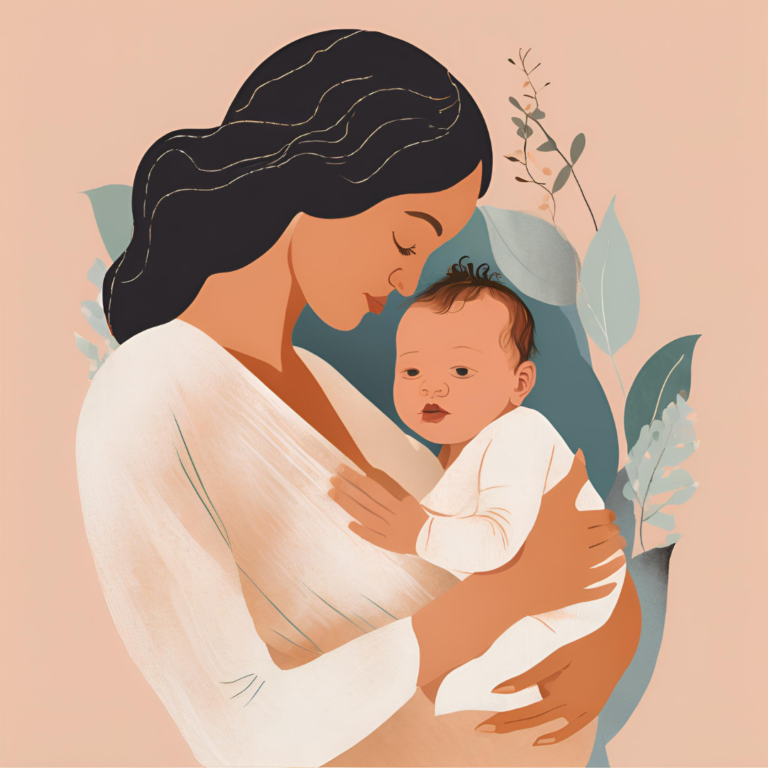By Shiza Shahzad
The postpartum experience of young mothers is a topic that resonates deeply with me and deserves to be at the forefront of our discussions. Having gone through it myself and interacted with numerous clients, friends, relatives, and acquaintances who are mothers, I’ve seen firsthand how often this experience is overlooked. This article aims to shed light on the realities faced by women as they embark on the journey of motherhood.
What is the Postpartum Period?
The postpartum period begins after childbirth and brings a range of physical, mental, hormonal, and emotional changes. Every woman experiences postpartum differently, with some facing mild discomfort while others endure severe emotional and mental distress. First-time mothers often feel overwhelmed, experiencing crying spells, constant anxiety, frustration, or a sense of hopelessness and numbness. These intense emotions can impact their relationships, daily functionality, and ability to care for their child. Understanding the postpartum experience is crucial to addressing the underlying feelings of overwhelm and frustration.
This article will highlight the common emotional experiences of postpartum women, helping readers identify and acknowledge their own state of mind.
Navigating Motherhood: A Transformative Journey
One of the most profound transitions in a woman’s life occurs when she adopts the role of motherhood, bringing with it new demands, expectations, and responsibilities. This transition often leads to a sense of losing one’s identity beyond motherhood, prompting questions like, “Who am I besides being a mother?” Many women experience a crisis of identity as they integrate this new role into their lives, longing for aspects of their former selves.
Feelings of guilt and shame often accompany these thoughts. Internal dialogues like, “I planned and wanted this child, so why do I feel sadness and miss my old life?” are common. It’s crucial to recognize that these emotions are natural and valid. Missing aspects of one’s pre-pregnancy life does not diminish love for the child or make a mother ungrateful. It’s normal to experience conflicting feelings during this transformative time.
As a therapist, I want to affirm that it’s okay to miss your pre-baby self and still embrace motherhood. You can crave alone time and cherish moments with your child simultaneously. We must normalize and humanize these complex emotions without imposing guilt or judgment on mothers.
The Challenge of Lost Independence in Postpartum
A significant challenge for women in the postpartum period is the loss of independence, freedom, and spontaneity. Infants require constant care—feeding, sleeping, diaper changes—making their needs the priority. Mothers find themselves immersed in repetitive tasks day and night, struggling to find time for even basic self-care activities like showering or enjoying a quiet moment. This newfound routine can lead to feelings of being stuck and isolated, exacerbated by seeing others around them continue with normal life.
This loss of independence can strain relationships, especially with partners, leading to a phase often referred to as the “roommate” stage where emotional and physical intimacy diminishes. It’s crucial for mothers to recognize and manage these feelings in a healthy manner. Seeking support, carving out personal time, and communicating openly with partners and loved ones are essential steps. Remember, it takes a community to raise a child, and seeking help is not a sign of weakness but a necessity for well-being. Support from those around young mothers should be offered with compassion and understanding, fostering an environment where they feel supported and valued.
The Pressure to be Perfect
Many women derive their self-worth from various roles—daughter, wife, professional—which intensifies with the addition of motherhood. The pressure to excel in all these roles exacts a heavy emotional and mental toll, often leaving women feeling drained and exhausted. Motherhood itself involves significant physical and emotional labor, compounded by sleep deprivation, leading to burnout and heightened sensitivity.
Amid fulfilling multiple roles and societal expectations, women often internalize pressure to appear strong and in control, despite feeling overwhelmed internally. This struggle can manifest as anger or rage in relationships, exacerbated by unsupportive environments. It’s vital for women to recognize these pressures and seek support to maintain their well-being during this challenging phase.
Body Image Challenges in Young Mothers
Many young mothers struggle emotionally with their changed bodies after childbirth. They often feel disgusted, disappointed, and sad, longing for their pre-pregnancy appearance. This dissatisfaction can lead to demotivation and low self-esteem, worsened by comparisons on social media. There’s often a lack of self-compassion and acceptance, which may also be lacking in immediate surroundings.
Constant Comparisons, Unsolicited Advice, and Interference
Young mothers often face distress from constant comparisons and unsolicited advice, especially from older women and family members. This stress can lead to resentment, anger, or feelings of inadequacy. The barrage of criticism and comparisons—statements like “I gave birth without an epidural,” “I breastfed for two years,” or “I potty trained my child early“—further fuels self-doubt. It’s important to recognize that these remarks often stem from the speaker’s own experiences and upbringing, perpetuating a cycle.
Unfortunately, young mothers often lack validation, empathy, or encouragement from their peers. Understanding and support from others can help alleviate these pressures and boost confidence during this challenging time.
The Dilemma of the Modern Working Mother
Reflecting on the postpartum experience, I’ve realized how undervalued motherhood and caregiving are in our society. As a working mother, a stay-at-home mother, or balancing both, many women of our generation grapple with feelings of worthlessness in non-career pursuits or guilt when prioritizing their careers. Society often diminishes the importance of caregiving tasks, labeling them as mundane despite their demands for time, energy, and organizational skills.
Unlike professional roles that offer financial compensation, recognition, and promotion, motherhood lacks visible rewards, leading to a sense of invisible labor. Shifting my perspective on these tasks helped me make better choices for my family and embrace motherhood as a source of personal growth rather than a burden. Feeling valued and appreciated in this role boosted my self-confidence as a mother.
It’s crucial to reassess how we perceive and value caregiving tasks, recognizing their empowering potential rather than dismissing them. By reevaluating our relationship with motherhood, we can enrich our life experiences and foster a healthier self-image as mothers.
Conclusion
The postpartum experience is a profound journey marked by complex emotions and challenges often overlooked by society. It’s essential to acknowledge the physical, emotional, and psychological changes women undergo during this transformative period. From adjusting to a new maternal identity to coping with the loss of independence and societal expectations, each aspect contributes to a unique and sometimes overwhelming experience.
Creating a compassionate environment involves fostering open dialogue, offering empathetic support, and validating these emotions without judgment. Through self-awareness, acceptance, and seeking help when needed, women can navigate this journey with resilience and reclaim empowerment in their roles as mothers. It’s crucial to prioritize discussions around postpartum experiences to ensure every woman feels supported and understood during this significant chapter of her life.
Note: Persistent feelings of hopelessness, sadness, or suicidal thoughts lasting more than two weeks require immediate professional support.

The writer is a mental health professional.
She can be reached at shiza.shahzad173@gmail.com



